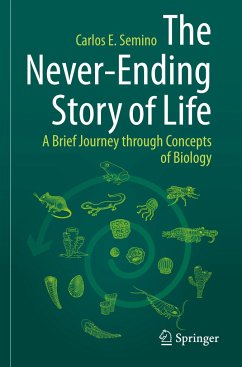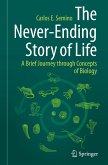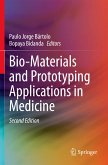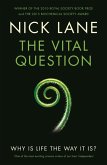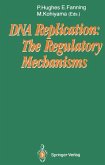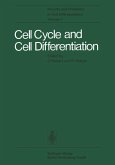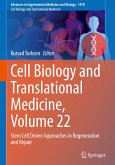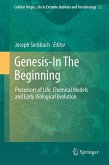For humankind, the most irreducible idea is the concept of life itself. In order to understand that life is essentially an infinite process, transmitted from generation to generation, this book takes the reader on a fascinating journey that unravels one of our greatest mysteries.
It begins with the premise that life is a fact-that it is everywhere; that it takes infinite forms; and, most importantly, that it is intrinsically self-perpetuating. Rather than exploring how the first living forms emerged in our universe, the book begins with our first primordial ancestor cell and tells the story of life-how it began, when that first cell diversified into many other cell types and organisms, and how it has continued until the present day. On this journey, the author covers the fundaments of biology such as cell division, diversity, regeneration, repair and death. The rather fictional epilogue even goes one step further and discusses ways how to literally escape the problemof limited recourse and distribution on our planet by looking at life outside the solar system.
This book is designed to explain complex ideas in biology simply, but not simplistically, with a special emphasis on plain and accessible language as well as a wealth of hand-drawn illustrations. Thus, it is suitable not only for students seeking for an introduction into biological concepts and terminology, but for everyone with an interest in the fundamentals of life at the crossroad of evolutionary and cell biology.
It begins with the premise that life is a fact-that it is everywhere; that it takes infinite forms; and, most importantly, that it is intrinsically self-perpetuating. Rather than exploring how the first living forms emerged in our universe, the book begins with our first primordial ancestor cell and tells the story of life-how it began, when that first cell diversified into many other cell types and organisms, and how it has continued until the present day. On this journey, the author covers the fundaments of biology such as cell division, diversity, regeneration, repair and death. The rather fictional epilogue even goes one step further and discusses ways how to literally escape the problemof limited recourse and distribution on our planet by looking at life outside the solar system.
This book is designed to explain complex ideas in biology simply, but not simplistically, with a special emphasis on plain and accessible language as well as a wealth of hand-drawn illustrations. Thus, it is suitable not only for students seeking for an introduction into biological concepts and terminology, but for everyone with an interest in the fundamentals of life at the crossroad of evolutionary and cell biology.

